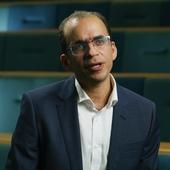
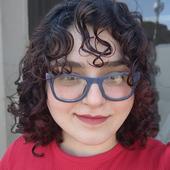
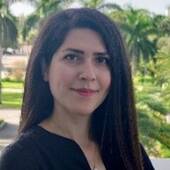
Mahsan Sadoughipour
Graduate Research Assistant: Department of Ocean and Mechanical Engineering, Florida Atlantic University
Less ![]()
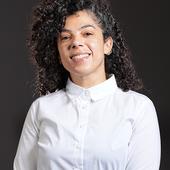
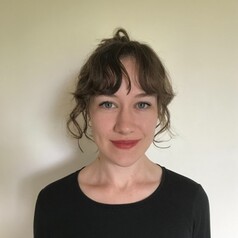
Maia Germano
Sessional tutor, The University of Melbourne
Maia is a Research Coordinator at PIJI, managing the Assessment of Diversity research theme.
Maia has recently completed a Master of Geography at the University of Melbourne, with a background in international studies. She has research experience at RMIT’s Centre for Urban Research and not-for-profit organisations.
Less ![]()
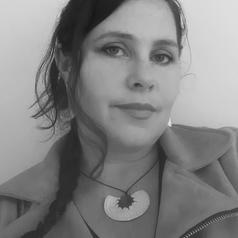
Maibritt Pedersen Zari
Senior Lecturer in Sustainable Architecture, Te Herenga Waka — Victoria University of Wellington
Dr Pedersen Zari's research seeks to redefine sustainable architecture and urban design through mimicking ecosystems, changing the goals from sustainable to regenerative development, and integrating complex social factors into sustainable architectural design. Her current research explores how understanding ecosystem services can be used to define tangible ecology-based metrics for sustainability assessment in the urban built environment with particular regard to how climate change and continued loss of global biodiversity will affect architecture and communities. Her expertise include: urban climate resilience and adaptation in the Pacific, biophilic design, nature-based solutions, biomimicry, ecosystem services in cities, regenerative design, and urban biodiversity. Her work has been cited more than 700 times in international publications. Pedersen Zari is the author of 'Regenerative Urban Design and Ecosystem Biomimicry', Routledge, 2018, and co-author / editor of 'Ecologies Design: Transforming Architecture, Landscape, and Urbanism, Routledge', forthcoming 2020.
Less ![]()
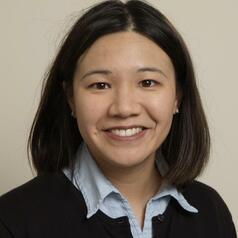
Maida Lynn Chen
Professor of Pediatrics, School of Medicine, University of Washington
Dr. Maida Lynn Chen, MD, is Director of Sleep Medicine and attending physician at Seattle Children’s Hospital in the Pulmonary & Sleep Medicine Division and Professor in the Department of Pediatrics at the University of Washington School of Medicine. She obtained her undergraduate and medical degrees at Northwestern University, and stayed in Chicago to do her residency in Pediatrics at Rush-Presbyterian-St.Luke’s Medical Center. She then completed her Pediatric Pulmonary Fellowship at Children's Hospital Los Angeles, with special focus on respiratory control and sleep medicine. Her clinical interests center on sleep disorders in infants, children, and adolescents. Her research interests focus on respiratory control disorders and sleep-disordered breathing in special needs populations, including those with Fetal Alcohol Spectrum Disorders, obesity, Congenital Central Hypoventilation Syndrome and craniofacial anomalies. She is a member of the American Academy of Pediatrics, American Thoracic Society, American Academy of Sleep Medicine, and Sleep Research Society.
Less ![]()
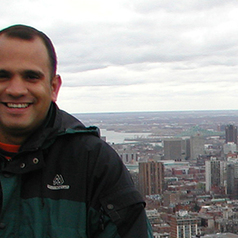
Maikel Rosabal
Professeur agrégé, département des sciences biologiques, Université du Québec à Montréal (UQAM)
Diplomé à l’Universidad de La Havana en biochimie avec intérêt pour la recherche en écotoxicologie, j’ai débuté un projet de maîtrise à l’INRS sous la supervision de Landis Hare et Peter Campbell en 2009. Ensuite, j’ai décidé d’entamer un projet de recherche doctoral avec la même équipe. Mes recherches portaient sur la gestion intracellulaire de plusieurs métaux dans deux modèles d’animal : larves d’insecte et des anguilles. Les résultats de recherche générés dans ces études m’ont permis d’obtenir la médaille d’or du Gouverneur Général de Canada. J’ai fait une année de recherche postdoctorale dans le laboratoire de Marc Amyot (Université de Montréal) en 2015 et une année après, j'ai été engagé comme professeur au département des sciences biologiques à l’Université du Québec à Montréal. Les recherches de mon équipe portant d'abord sur la compréhension de la manière dont les métaux traces provoquent des effets délétères en interagissant avec des biomolécules importantes au niveau subcellulaire dans différents tissus d'organismes aquatiques, ainsi que sur l'évaluation des conséquences biochimiques et physiologiques de ces interactions, de l'individu au niveau de l'écosystème. Les principales approches de mes recherches incluent des méthodes de fractionnement subcellulaire des métaux et des techniques liées à la métallomique environnementale. Les connaissances approfondies de la toxicité des métaux générées dans mon laboratoire vont contribuer à développer des outils environnementaux à utiliser pour l'évaluation de l'impact des métaux traces sur les écosystèmes aquatiques.
Less ![]()
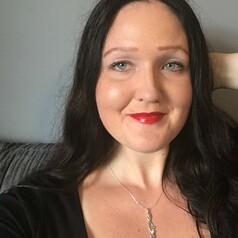
Maiken Mosleth King
Lecturer in Ancient History, University of Bristol
My PhD research, supervised by Dr Shelley Hales and Dr Silke Knippschild, centres on Egyptian funerary stelae from the Roman period, using the site of Terenouthis/Kom Abou Billou as a case study. I am exploring how the inscriptions and iconography are used to construct and express the social identity of the deceased, with particular focus on gender, religious identity and ethnic identity; I am also investigating the effects of linguistic interference from the Egyptian language on the Greek language in Terenouthis.
I have previously completed a BA and MA in Egyptology at the University of Liverpool, where I specialised in the ancient Egyptian language and literary texts. My BA thesis investigated the concept of divine kingship in didactic literature from the Middle Kingdom period. My MA thesis, supervised by Dr Roland Enmarch and Prof Christopher Eyre, focused on the themes and motifs in the Late Egyptian literary text 'Tale of Two Brothers'.
My research interests are diverse and include ancient Egyptian language and literature, cross-cultural contact in the ancient Near East and Mediterranean, language contact in the eastern Mediterranean and Near East, Hellenism and Greek language in Egypt and the Near East, comparative Semitic philology, religion in ancient Egypt and the Mediterranean, Coptic language and literature, early Christianity, the reception of ancient Egypt and archaeology in modern visual media, and the reception of ancient Egypt in 19th and 20th century spirituality and religious movements.
My linguistic competence is broad and includes Egyptian hieroglyphs, Coptic, Classical Greek, Latin, Biblical Hebrew, Phoenician and Classical Arabic.
In addition to my academic research I am actively involved in the outreach programmes Access to Bristol and Classics for All, delivering workshops to schools in the South on a wide range of topics related to the study of ancient Egypt, Greece and Rome. I also regularly teach courses in ancient Egyptian hieroglyphics and give public lectures on a range of topics related to Egyptology and ancient history. For upcoming events and courses, please visit https://mmkingevents.weebly.com and https://kemetklub.co.uk.
I am on the board of the Friends of the Petrie Museum, UCL as Secretary-Treasurer. In addition to this role I am also on the judging panel for the category Classical Studies and Archaeology of the Global Undergraduate Awards, an academic awards programme which aims to connect undergraduate students across national borders and academic disciplines.
Less ![]()

Maiken Umbach
Professor of Modern History and Faculty Research Director, University of Nottingham
AREAS OF EXPERTISE:
History of the Third Reich, especially propaganda, visual culture, architecture, photography.
Regionalism in modern Europe. The historical roots of modern identity politics; the role of material culture (buildings, urban design, objects) in shaping national and local identity; the history of the brand "Made in Germany".
The role of private 'snapshot' photography in prompting political behaviour, how people internalise, or contest, ideologies and cultural beliefs.
The problems of using 'perpetrator photography' to represent difficult histories, especially in the context of the way we document and exhibit the Holocaust.
Landscape: ways of seeing and perceiving landscapes, the way that historically created landscape shape our ideas of what is 'natural' and 'beautiful'. Modern landscape art; Anselm Kiefer.
Brief bio:
1970
born in Germany
1989-92
University of Cambridge MA in History, First Class
92-96
University of Cambridge PhD (study of how landscape gardens in England and Germany shaped and expressed ideas about Enlightenment and progress, and travelled across national boundaries)
95-98
Junior Research Fellow, Gonville and Caius College, Cambridge
98-2011
Senior Lecturer in Modern European History, University of Manchester
2011-present
Professor, Chair in Modern History, University of Nottingham
Visiting appointments
Institute for Contemporary History, Munich (2015)
Freie Universität Berlin (2008)
University College London (2005-06)
Universitat Pompeu Fabra, Barcelona (2004-05)
Harvard University (2001-02 and 2003)
Australian National University (2001)
Key books / publications (highlights only):
Photography and Twentieth-Century German History, Central European History. 48(3), 2015
German Cities and the Genesis of Modernism, 1890-1930, Oxford University Press, 2009
Municipalism, Regionalism, Nationalism. Hybrid Identity Formations and the Making of Modern Europe. European Review of History, 15/3 (2008)
Vernacular Modernism: Heimat, Globalization and the Built Environment. Stanford University Press, 2005
Hijacked Heimats. National Appropriations of Local and Regional Identities in Germany and Spain, 1930-1945, with Xosé M. Núñez Seixas, European Review of History 15/3 (2008), 295-316.
A Tale of Second Cities: Autonomy, Culture and the Law in Hamburg and Barcelona in the Long Nineteenth Century, American Historical Review, 110/3 (2005), 659-692.
Memory and Historicism: Reading between the Lines of the Built Environment, c.1900, Representations, 88 (2004), 26-54.
"Made in Germany". In H Schulze and E Francois, Deutsche Erinnerungsorte. Beck, 2001.
Federalism and Enlightenment in Germany, 1740-1806, Hambledon, 2000.
FOR MORE DETAILS, SEE:
http://www.nottingham.ac.uk/history/people/Maiken.Umbach
Less ![]()
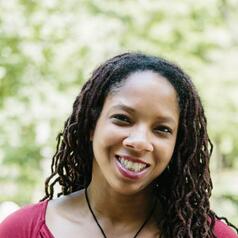
Maisha Wester
Lecturer, American literature and African American Cultural Studies, University of Sheffield
My research and teaching focuses on Gothic literature and Horror Film, although I also teach American literature and African American Cultural Studies. I specifically investigate racial discourses and manifestations in Gothic Literature and Horror film, as well as the way Black Diasporic people have appropriated the genres to speak back against oppressive socioeconomic rhetoric. For my BA fellowship, I am investigating the ways the Gothic has and continues to impact and inform anti-Black language and discourses from the Gothic’s rise to our current era (as such, I will also consider the ways Horror Film takes up this task in the twentieth-century). I am especially interested in how the genres morph alongside any moments of racial progress, thus providing a means to consistently erase Black humanity despite seeming political and ideological advancement. To put it simply, I want to explore how Gothic Literature and Horror Film have contributed to populations still needing to shout “Black Lives Matter” in protest during the Twenty-First century—150 years of the US abolition of Slavery and over 200 years after its abolition in the UK—at a point of such intellectual and scientific progress that we should be well beyond this discussion. Although my work focuses upon anti-Black discourse, it is also inspired by and has ramifications for anti-immigrant discourses (such as rhetoric warning against hordes of non-white immigrants coming to rape and pillage the nation).
Less ![]()
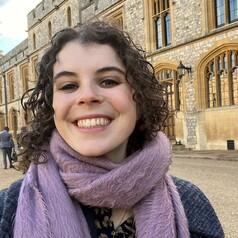
Maisie Vollans
PhD Candidate, Mosquito Ecology, University of Oxford
Maisie Vollans is a PhD student in the Mathematical Ecology Research Group at the University of Oxford. Her main interests lie in mosquito ecology and, as such, her DPhil project is centred around the broad ecological implications of releasing self-limiting GM mosquitoes. She is researching this using a variety of techniques: theoretical mathematical modelling, experiments in the laboratory and a systematic literature review.
Prior to her PhD, she completed a Masters in Tropical Forest Ecology at Imperial College London, where her thesis examined the impact of forest degradation on the size and demography of mosquito populations. Her undergraduate degree was in Biological Sciences at the University of Oxford.
Less ![]()
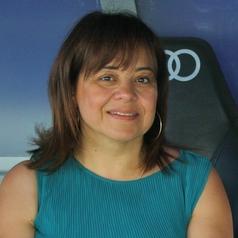
Maissaa Almustafa
Lecturer, Political Science, University of Waterloo
Dr. Maissaa Almustafa is a Lecturer at the Department of Political Science at the University of Waterloo. Her primary research interests are on the forcibly displaced. She focuses on their lived experiences as refugees and the politics of marginalization that govern their lives in the Middle East and in their diasporic communities in Europe and Canada. Her scholarship is enhanced by her active involvement in community outreach initiatives in refugee resettlement and integration. Maissaa earned her Ph.D. in Global Governance at the Balsillie School of International Affairs, Wilfrid Laurier University, Waterloo ON. She recently completed a Postdoctoral Fellowship at Glendon Political Science at York University, Toronto, were she joined the Whole-COMM, a research project on migrant integration in Europe and Canada, funded by the European Union’s Horizon 2020. Her publications and research focus on lived experiences of refugees and the politics of marginalization that govern their lives in the Middle East and in their diasporic communities in Europe and Canada. In her doctoral research, “Refugees from Syria caught between war and borders: A journey towards protection,” which received the Award for Outstanding Graduate Work, she examines the governance structures of refugee protection and the encounters between exclusionary bordering practices and refugees’ agency during their displacement. The findings of her research appeared in leading journals. Dr. Almustafa is currently working towards the publication of her book “Contemporary Narratives of Exile: Rethinking Refugee Protection Worldwide” which is based on her dissertation research, with Wilfrid Laurier Press.
Less ![]()
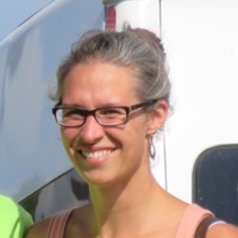
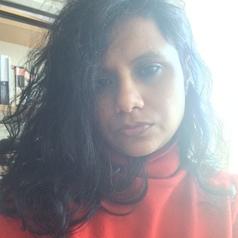
Maitrayee Deka
Senior Lecturer of Sociology, University of Essex
Before joining Essex, I did my PhD from the Graduate School of Social and Political Sciences at the University of Milan and have spent two years as a post-doctoral researcher at the University of Milan, working on the research project P2PValue, funded by the European Commission's FP7 program.
My research is in the area of Economic Sociology, STS, Consumer Cultures and Social Theory. I am interested in looking at alternative systems to global capitalism to frame them as a distinct analytical and political category. Part of this interest emerges from examining global bazaar economies as a popular economic system based on my ethnography in Delhi's Electronic Bazaars and developed as a monograph, Traders and Tinkers: Bazaars in the Global Economy, published with Stanford University Press.
I am currently researching the Whitechapel market in East London to investigate bazaars as intellectual places drawing from the literature on public space, and Autonomist Marxism. The other strand of my research focuses on marginal cultural spaces, particularly young adults' social media use in the Global South, to see how they engage with global platforms in unique ways. Overall, I am interested in building a more embedded social theory through observations and practices often ignored in the dominant academic framework.
Less ![]()
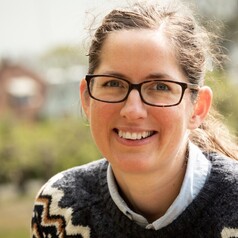
Maj Rundlöf
Researcher in Ecology, Lund University
I am an ecologist and environmental scientist interested in understanding the multitude of factors affecting biodiversity and the functions organisms provide in ecosystems and to humans. I am particularly interested in how land use change and management of agricultural landscapes affect pollinators and the pollination services they provide to both crops and wild plants.
Less ![]()
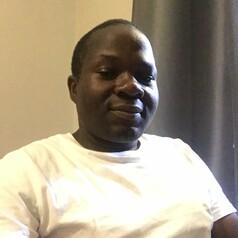
Maja Jakarasi
PhD student, Department of Cultural Anthropology, University of the Western Cape
PhD student at University of Western Cape
In Cultural Anthropology department
Student number 4280646
Research interests
Mental healing, coloniality and decoloniality of knowledge production, traditions and social norms in transformative religion
Less ![]()
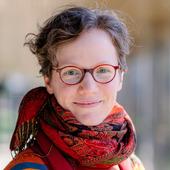
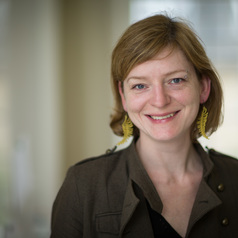
Maja Založnik
Research Fellow in Demography, University of Oxford
I am a demographer and methodologist working for the University of Oxford, and a fellow of the Oxford Martin School.
Less ![]()
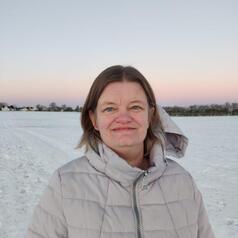
Majbritt Lyck-Bowen
Research Fellow and Senior Lecturer in Reconciliation and Peacebuilding, University of Winchester
I am an experienced principal investigator of international research projects and a conflict transformation facilitator. I am also an award winning teacher and presenter.
Here are some of the areas I cover in my training: 1) Exploring interpersonal conflict; 2) Turning conflict styles into strategies: 3) Developing key interpersonal skills; 4)Facilitating challenging conversations; 5) Developing intercultural awareness and competencies; 6) Creating a culture of dialogue; 7) Workplace mediation; 8) Facilitating inclusive meetings and 9) Developing strategies using envisioning and appreciative inquiry.
My research currently focuses on welcoming and integrating people on the move in Europe. I am currently particularly interested in the roles of language cafes in integration and the roles of faith-based actors in integration. In the past I have also done a lot of research on accountability for war crimes and transitional justice processes.
I also manage distance learning master programmes in reconciliation and peacebuilding at the University of Winchester, for more information see: https://www.winchester.ac.uk/study/postgraduate/courses/ma-reconciliation-and-peacebuilding/
Less ![]()
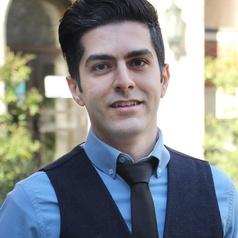
Majid Hashemi
Adjunct assistant professor, Economics Department, Queen's University, Ontario
Less ![]()
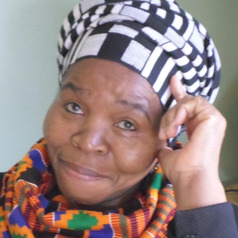
Makhosazana Xaba
Associate Professor of Practice, Faculty of Humanities, University of Johannesburg
Makhosazana Xaba is an award-winning South African anthologist and short story writer. She is also an editor, essayist, poet and an Associate Professor of Practice in the Faculty of Humanities at the University of Johannesburg based at the Centre for Race, Gender and Class. She was formerly a Research Associate at the Wits Institute for Social and Economic Research.
Xaba has worked with national and international NGOs and in the areas of women’s sexual health and rights, gender and anti-bias training and in philanthropy. Xaba initially trained as a general nurse, midwife and a psychiatric nurse and later became an anti-apartheid activist and spent some years in exile.
She holds an MA in Creative Writing from Wits University. Recently she co-edited Foundational African Writers: Peter Abrahams, Noni Jabavu, Sibusiso Nyembezi and Es’kia Mphahlele with Bhekizizwe Peterson and Khwezi Mkhize and introduced, Noni Jabavu: a Stranger at Home with Athambile Masola. This book is a compilation of columns written by Noni Jabavu for the Daily Dispatch newspaper in 1977.
Less ![]()
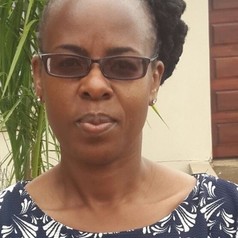
Makoma Bopape
Lecturer in Department of Human Nutrition and Dietetic, University of Limpopo
Ms. Makoma Bopape is a lecturer at the University of Limpopo, Department of Human Nutrition and Dietetics. She is a dietitian by profession and has passion in child nutrition. She also has interest in obesity prevention. She is a registered PhD at the University of the Western Cape, School of Public Health and is engaged in an obesity prevention project.
Less ![]()
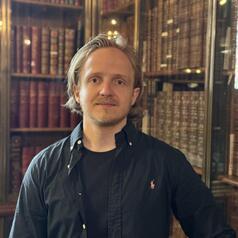
Maksim Markelov
PhD Candidate, Russian and East European Studies, Manchester University
Maksim is a linguist (computational linguistics, corpus-based studies, semantics, terminology) and discourse analyst, working on an interdisciplinary PhD project, situated at the intersection of Linguistics, Media Studies, and Russian and East European Studies.
Under the supervision of Professors Stephen Hutchings and Vera Tolz at the University of Manchester, Maksim is carrying out research using a combination of quantitative and qualitative methods for a PhD project entitled: "Transforming Meaning: Russian Trolls in Social Media’s Changing Linguistic Landscape".
When complete, Maksim's thesis will provide the first substantive analysis of how the linguistic practices of online actors identified as Russian state-sponsored trolls change with time and context.
Less ![]()
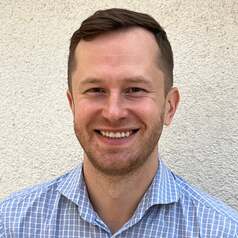
Maksim Rudnev
Research Associate, Department of Psychology, University of Waterloo
For many years, my research has been focused on basic human values as they appear across nations. More recently, I got interested in perceptions of older adults and lay theories of wisdom, both in a cross-cultural perspective. Simultaneously, I pursue a track of methodological research. In particular, I investigated a complex role of ipsatization and effects of accounting for measurement error in the values research. I contributed to the measurement invariance methods, including invariance of the second-order factors and latent classes. Currently I am developing an R package featuring a method for identifying clusters of invariant groups in a network-like representation.
Less ![]()
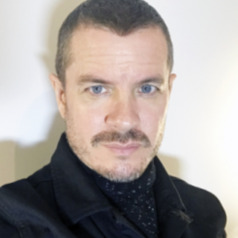
Mal Burkinshaw
Head of Design, The University of Edinburgh, The University of Edinburgh
Mal is an alumni of Edinburgh College of Art and The Royal College of Art, in London, where he won the BT Award for Outstanding Studies. After graduation, Mal worked in Italy as a designer for United Colours of Benetton, and then as a freelance designer. Returning to Edinburgh, he established the design label, MalandLeigh, a partnership specialising in fashion and interiors.
In addition to his role as Programme Director for Fashion at Edinburgh College of Art, Mal is a committee member for the British Fashion Council Colleges Council, and from 2014-2019, he was a Trustee of Graduate Fashion Week.
Mal also serves as an external examiner for a number of UK courses, and has worked for a number of institutions includige NCAD Dublin, The London College of Fashion, Arts University Bournemouth, UCA Epsom and Kingtson University.
Mal continues to be an active designer, believing that this is important to his teaching methods on the programme, and his work has been exhibited at significant international venues including; the Scottish National Portrait Gallery (Edinburgh), The International Centre for Lace and Fashion (Calais, France), The Bonnington Gallery (Nottingham), The Shanghai Museum of Textiles and Costume and Venice Design 2019.
He also directed The Edinburgh College of Art Diversity Network, uniting experts from academia, industry and charity sectors to discuss and improve fashion design through collaboration and public engagement.
Less ![]()
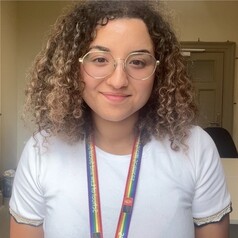
Malak Benslama-Dabdoub
Lecturer in law, Royal Holloway University of London
Malak holds a Bachelor degree in Law from Université Panthéon-Assas (Paris, France), an LLM in Human rights law from Queen Mary University of London and an MSc in Global Migration from University College London (UCL). Prior to her doctrinal research, Malak worked for several NGOs and international organisations, including for the United Nations in Vienna, Doctors Without Borders in Brussels, and the AIRE Centre in London.
Malak is now a Lecturer in Law at Royal Holloway University of London. She specialises in the areas of human rights law, refugee law, statelessness, Palestinians, and Kurds. Her research and teaching relies on a decolonial and intersectional methodology that includes critical race theory.
Less ![]()
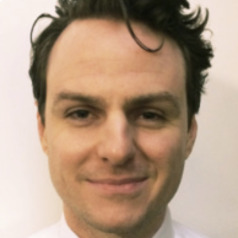
Malcolm Forbes
Consultant psychiatrist and PhD candidate, Deakin University
Malcolm is a consultant psychiatrist and psychogeriatrician. He is a Fellow of the Royal Australian and New Zealand College of Psychiatrists (RANZCP).
He is currently pursuing a PhD in the aetiology of late-life depression at Deakin University.
Less ![]()
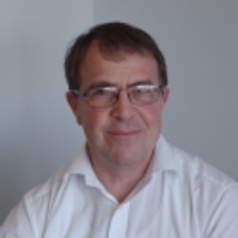
Malcolm James
After graduating I entered the accounting profession, specialising in tax after qualification (ACA, CTA). In 1993 I became a lecturer and have recently completed my PhD on the role of power in the formulation of tax policy.
I have written extensively for professional journals and am the author of a technical book on taxation (Taxation of Small Businesses - Spiramus Press). However, I have published academic papers taking a critical approach towards the sociological and moral underpinnings of taxation.
Less ![]()
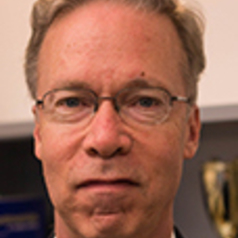
Malcolm Moran
Malcolm Moran has directed sports journalism programs for nearly a decade after spending more than 30 years at The New York Times, USA TODAY and other publications.
Moran is director of the Sports Capital Journalism Program in the Department of Journalism and Public Relations at IUPUI, where he joined the faculty in January, 2013. For more than six years, he was the inaugural Knight Chair in Sports Journalism and Society at Penn State University, where he directed the John Curley Center for Sports Journalism. Since 1980, he has covered more than 25 bowl games with national championship stakes. He has covered 26 NCAA Final Fours, 11 Super Bowls, 16 World Series and three Olympic Games.
He is a member of the board of the Football Writers Association of America and has had several stories recognized in the organization’s best writing contest. Moran is a past president of the United States Basketball Writers Association and a member of the organization’s Hall of Fame. In 2007, he received the Curt Gowdy Print Media Award from the Naismith Memorial Basketball Hall of Fame for lifetime coverage of basketball.
Less ![]()
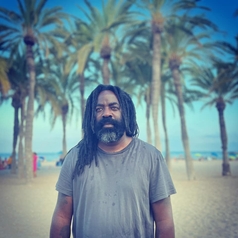
Malcolm Richards
Senior Lecturer in Education, University of the West of England
My ongoing research interests include equity in education, funds of identity and teacher education and teaching development, Black Studies in Education, dialogue and dialogic education, critical race methodologies, anti-racist pedagogies, transformative digital education, and professional teaching cultures in education.
My doctoral thesis (University of Exeter, 2019-2023) is a qualitative research study, which uses multimodal action research to examine how teachers relate their funds of identity with Black [British] cultures in processes of resource mediation for anti-racist teaching and learning across schools in the Southwest of England.
Less ![]()
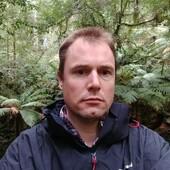
Maldwyn John Evans
Senior Research Fellow, Fenner School of Environment and Society, Australian National University
Less ![]()

Maleeka Singh
Maleeka received her BSc. from the University of Toronto (majors: Genes, Genetics & Biotechnology and Sociology; minor: English), MSc. from University of Guelph (Food Science) and is currently a PhD Student at the University of Guelph (Food Science). Her current research aims to improve transparency in the food supply chain by using biological and chemical fingerprinting as multi-parameter and complementary tools to assess food integrity. This research will ensure a safe supply chain, high-quality foods for consumers, increased accountability from farmers to distributors and minimize waste.
Less ![]()
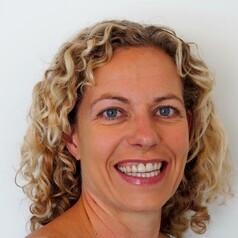
Malene Felsing
Moana Project Manager, MetService — Te Ratonga Tirorangi
Malene is the Moana Project Manager and team lead of the Whai Hua project workstream. Her background is in marine ecology and resource management.
Less ![]()
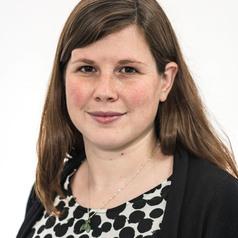
Malika Felton
Senior Lecturer in Health and Exercise Physiology, Bournemouth University
Malika joined BU in 2017 to complete her PhD in Health Sciences and joined the Department of Rehabilitation and Sport Sciences in February 2021 as a Lecturer in Health and Exercise Science. She is Programme Leader for BSc (Hons) Sports Therapy and teaches physiology and innovation units on this programme. Her research interests are in women's health, especially related to maternal health, and in the areas of physical activity and non-pharmacological treatment methods.
Malika is continuing to research in the field of her PhD area and has received internal Faculty pump-priming to run a feasibility trial investigating the feasibility of using slow and deep breathing to manage high blood pressure during pregnancy (pregnancy-induced hypertension).
After submitting her PhD in 2021, Malika joined the University of Exeter as a Postdoctoral Research Associate to join the Moving Through Motherhood research team. The GW4 Alliance funded project supported a multi-disciplinary team and Malika's role was to organise and run a series of virtual workshops.
Research
Malika has received internal HSS pump-priming funding to complete the study 'Effects of slow and deep breathing on reducing obstetric intervention in women with pregnancy-induced hypertension'. Recruitment for this study will open in Jan 2022 at a local NHS Foundation Trust.
Malika is part of the Moving Through Motherhood research group, which is a multi-disciplinary team from University of Exeter, University of Bath, University of Bristol, Cardiff University and King's College London. Their aim is to improve information and resources for women related to physical activity during and after pregnancy. Using a co-design methodology, pregnant women, mother's and other stakeholders contribute as collaborators in the research process. Malika won the Early Career Researcher Award at the WiSEAN Conference (Women in Sport and Exercise Academic Network) in Liverpool in June 2023, for presenting this work. The award is given for outstanding work in the field of women in sport and exercise science and Malika was selected for the award by members of the WiSEAN scientific committee and fellow Early Career Researchers.
Less ![]()
- Market Data























